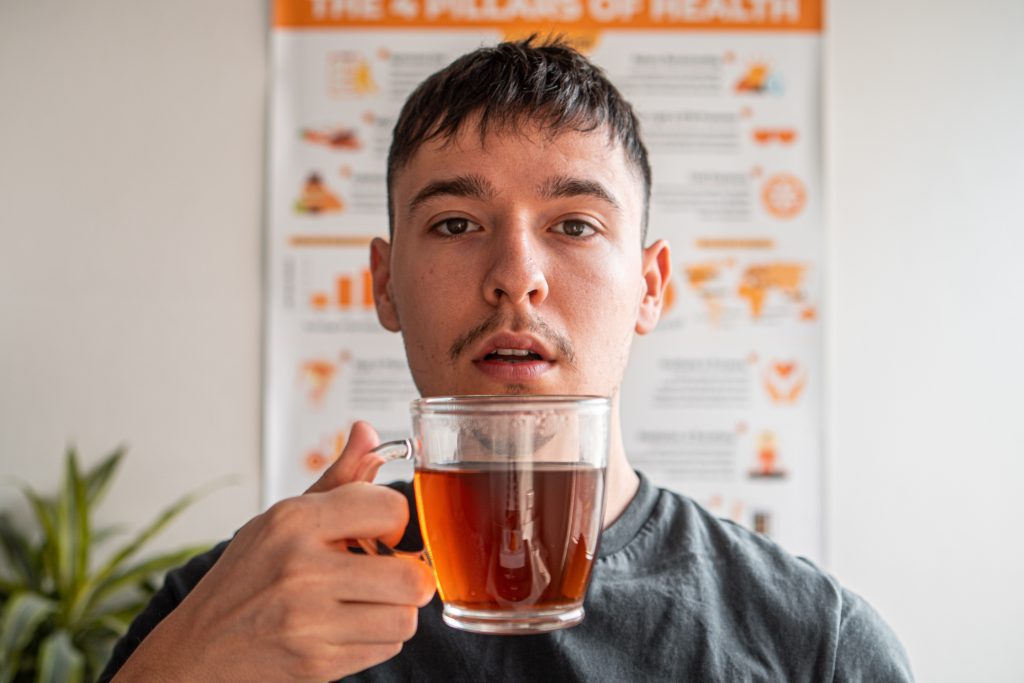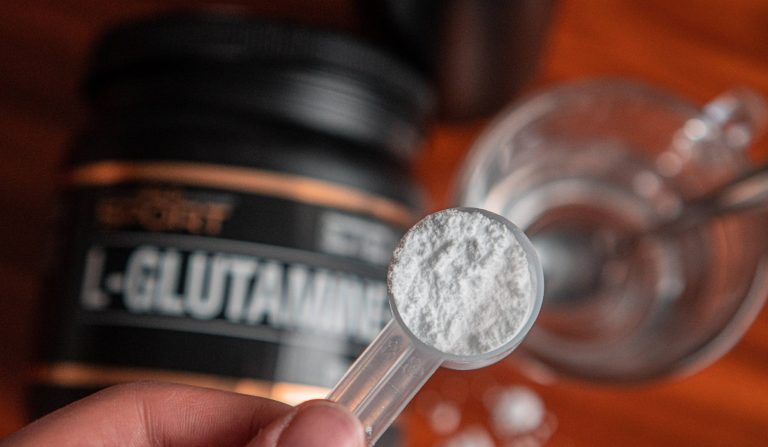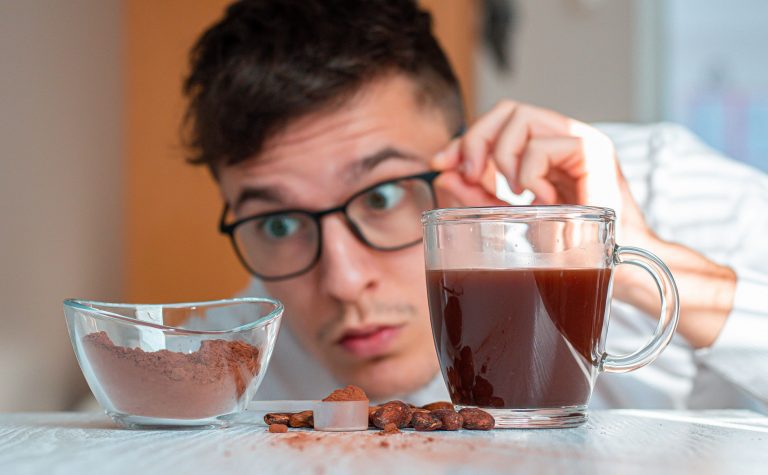Is Coffee Good for You? The Pros and Cons of Caffeine Consumption
Coffee is the most popular drink enjoyed worldwide. As a potent stimulant, coffee can assist in improving brain function and acutely boost energy and alertness. But is it good for you?
We’ll look at all the pros and cons of caffeine. Too much coffee, or caffeine at the wrong time can disrupt your sleep, make you nauseous, and increase heart rate. However, balanced caffeine intake can have some great benefits for heart health, brain function, and inflammation. Let’s jump into it.
Fun Fact
Coffee drinks come from coffee seeds, not beans, contrary to popular belief. It comes from the Coffea plant cherries, which are small, red, and tough.
Pros of Coffee
1. Potent Stimulant, Cognitive Booster
Caffeine is the most popular psychoactive stimulant used all around the world. It’s your pick-me-up in the morning that makes the day start easier. It’s a potent nervous system stimulant from the methylxanthine class. (1)
The more we work throughout the day, the more energy we’ve produced. After energy (ATP) production, adenosine binds to its receptors to communicate fatigue to you, hence why you’d get sleepy. Not with caffeine. It has a similar structure to adenosine and blocks its receptors, effectively masking fatigue.
The activity (or sleepiness) of our CNS is regulated by the quantity of excitatory neurotransmitter Glutamate and inhibitory GABA. Caffeine affects our dopaminergic system, as it suppresses the inhibitory activity of GABA, meaning we’re more stimulated or active. (2)
Caffeine has been shown to have ergogenic effects. Caffeine improves focus and general cognitive performance, including learning, memory, mood, reaction time, and alertness in different studies. (3) (4) (5) (6)
2. May Prevent Heart Disease & Support Heart Health
Caffeine has been shown to spike up glucose levels or blood sugar, which can be problematic in people with diabetes or hypertension, as we’ll see in the Cons of Caffeine later on. Now for the good side.
In healthy people, consuming moderate amounts of 3-5 cups of coffee daily, the mortality risk by CVD was cut by 15%. Higher coffee consumption wasn’t associated with higher CVD risk. That being said, people with hypertension should consume less and control their blood pressure. (7)
Drinking 3-4 cups of coffee daily had the highest association with a lower risk of stroke (21%), and heart failure while drinking more than this wasn’t shown to reduce stroke risk. (8) (9)
It seems that moderate consumption of caffeine, around 2-3 cups a day is associated with a lower risk of heart disease, heart failure, or arrhythmia. (10)
3. Mood Booster, Reduction in Anxiety & Depression
Caffeine isn’t just a potent stimulant, it’s also a mood booster. Of course, misuse of caffeine or excessive consumption can cause anxiety and jitteriness.
Caffeine at doses of 200-250 mg can elevate mood for up to 3 hours, but higher doses like 600 mg may increase anxiety and tension. (11)
Another study that evaluated coffee consumption and the odds of depression in university graduates showed that those who had 4 cups of coffee were at lower risk of depression than those who had less than a cup of coffee. (12)
It seems that habitual intake of moderate amounts of caffeine (2-4 cups) has shown the potential to improve mood and cut the risk of depression, while excess caffeine can increase anxiety.
Morning caffeine intake leads to faster reaction time, higher vigor, and anxiety (since it’s stimulating), and can also improve physical performance. (13)

4. Liver Detox & Hepatoprotective Properties
Detox or detoxification is the process of toxin removal. Many times when we start fasting, eating a plant-based diet, or having some weird herbal tea, it’s detox time. But it seems that coffee can support liver detox too.
Besides many liver-protecting properties coffee is believed to have, it can also aid in liver detox. Coffee may reduce chronic liver diseases or fibrotic disease advancement. Coffee may activate certain enzymes that support liver detox, which was shown in animal models. Some coffee polyphenols may act hepatoprotective too. (14) (15) (16)
Drinking coffee can improve the level of certain liver enzymes like ALT, AST, and GGTP which may lower the risk for liver diseases. (17)
5. Physical Fitness and Athletic Performance
Caffeine increases alertness, masks fatigue, gives energy, etc. But there’s something more to caffeine here.
Caffeine is in many pre-workout supplements. Besides acting as a potent stimulant, it can increase glucose uptake which affects glycogen replenishment and accelerates muscle recovery. At optimal carbohydrate levels, caffeine can increase glycogen re-synthesis. (18)
- 5 out of 9 studies showed significant improvement in endurance performance after caffeine ingestion, which also reduced the perceived rate of exertion. (19)
- Coffee and caffeine showed superior effects to placebo or decaf coffee in terms of improving speed in trained cyclists. Ingested 1 hour before exercise, caffeine improved endurance performance. (20)
- Caffeine seems effective in improving strength and power too. This was especially true for the upper body, but not significant for lower body strength. (21)
Producing maximal force output, which is done during strength or power training relies on nervous system activation. If caffeine is a CNS stimulant, it’s logical to work to an extent.
6. Neuroprotective Properties, May Slow Down Neurodegeneration
The aging process is essentially accelerated oxidation. Our brain shrinks and ages with use. More oxidative stress speeds up brain aging and increases the risk of neurodegenerative diseases. Coffee is one potent antioxidant that helps us fight oxidative stress and damage.
A large meta-analysis looked at habitual coffee consumption and cognitive decline in 29,155 people. Higher coffee consumption was linked to a lower risk of Alzheimer’s disease. (22) Moderate doses of coffee/caffeine showed neuroprotective benefits, potentially reducing Parkinson’s risk, which wasn’t true for decaf. (23)
summary
Coffee contains many antioxidants and bioactive compounds that may exert neuroprotective effects. Polyphenols, theobromine, caffeic acid, anthocyanins, catechins, and chlorogenic acids are some of the powerful coffee compounds that may protect the brain. (24)
7. Potent Antioxidants, May Promote Longevity
When it comes to living longer, coffee has its perks. It’s not the first time hearing that coffee drinkers live longer, is it? As posted in HSPH Harvard, even decaf and instant coffee may lengthen their lifespan. (25)
Caffeine and coffee are known to possess anti-aging properties in different animal studies (26) but it seems that even in humans, in a large meta-analysis moderate consumption of coffee is linked to lower mortality risk. (27)
The potential of coffee to extend life lies in its potent antioxidants. Just being alive, producing energy, being exposed to toxins, digesting food, etc., causes oxidative stress. Coffee flavonoids seem effective in fighting this oxidative damage, especially Robusta which was shown to have a higher antioxidant capacity. (28)
8. Boost Metabolism, Aids in Weight Loss and Fat-Loss
To lose weight, you need to be in a caloric deficit, there’s no replacement for that. However, can coffee additionally assist or accelerate fat loss?
Coffee, tested on 8 healthy cyclists was shown to increase lipid oxidation, lipid turnover increased twice as much, and energy expenditure went up by 13%. (29) By activating your sympathetic nervous system, coffee can assist you in burning calories.
However, for fat loss, you need significant lipid mobilization. So, coffee on its own won’t make you a fat-loss machine, but combined with fasting or exercise can accelerate fat loss.
Coffee can also increase the thermic effect of food, meaning you burn more calories. 8 mg/kg showed an increase in metabolic rate and fat oxidation, too. (30)
Weight loss isn’t about looking good at the beach. Coffee’s effects extend far beyond that. Some compounds in coffee like catechins and chlorogenic acid may prevent metabolic syndrome diseases, which are related to weight gain, diabetes, and obesity. (31)
9. Regulation of Blood Sugar, Prevention of Type 2 Diabetes
When it comes to managing diabetes, different effects of coffee need to be taken into consideration. Caffeine can increase metabolic rate, accelerate fat loss, and may lower the risk of metabolic syndrome. So far, it seems perfect, but wait a bit, there’s a twist.
Acutely, coffee wasn’t shown to improve blood glucose control or insulin secretion. However, coffee may improve liver health, increase fat oxidation, and may preserve beta-cell function. Point is that habitual coffee consumption may indirectly improve other factors (fat loss, beta-cell, and liver function, less oxidative stress) that can reduce the risk of developing diabetes. (32)
- Larger meta-analysis studying over 1 mil. Participants show an inverse relationship between coffee consumption and type 2 diabetes. Interestingly, decaf coffee was effective too. (33)
- In people with poor blood sugar control, coffee may spike blood sugar levels. It was shown that caffeine capsules pre-meal elevated blood sugar levels post. (34)
Both during fasting and after meal, caffeine can spike glucose. For slower caffeine metabolizers, the spikes are higher. However, in healthy individuals, this doesn’t seem to be a problem.

Cons of Coffee
1. Insomnia, Sleep Disturbances & Low Sleep Quality
There’s no dilemma that caffeine is a stimulant. This is good news in the morning, but at night it disturbs your sleep. Drinking caffeine at later hours in the day can make it harder to fall asleep.
Caffeine’s half-life is 6 hrs, meaning half of the caffeine you consumed at 4 pm is there at 10 pm. Around 5-6 hrs is average, in slow metabolizers caffeine half-life may be around 8-10 hours.
Research shows the association of higher caffeine consumption with reduced sleeping time or poor sleep. (35) Compared at 0, 3, or 6 hours prior to sleep, caffeine ingestion in all groups had detrimental effects on sleep. (36)
Misuse of caffeine is excessive use or ingestion at the wrong time. This doesn’t just make it harder to fall asleep but also reduces sleep quality and time spent in REM sleep.
Another study in young males looked at sleep disturbances after administration of 1, 2, or 4 cups of coffee, decaf coffee, or water. Results showed that caffeinated coffee shifted REM sleep earlier in the night while postponing stages 3 and 4. This effect wasn’t there for decaf coffee. (37)
2. Heart Palpitations, Spikes in Blood Pressure & Glucose
Caffeine is a potent stimulant that can increase anxiety, heart palpitation, and spike blood sugar. To which extent this effect will occur depends on many genetic factors, one of which is the ability to metabolize caffeine.
Energy drinks are usually loaded with caffeine. Drinking energy drinks can increase (speed up) ventricular myocardial function. (38)
Caffeine administration may increase systolic and pulse pressure in people with hypertension. (39)
Acutely, caffeine may also increase blood sugar which may increase glucose variability in people with diabetes. (42) However, in most cases this is acute only. Some studies show that long-term, caffeine consumption may even improve glucose metabolism. (43)
Caffeine is known to increase blood pressure acutely, which may be detrimental for someone with hypertension or poor blood pressure control. However, habitual coffee consumption isn’t associated with an increased risk of CVD or increased blood pressure. (40) (41)
3. Withdrawal Symptoms, Addiction & Headaches
Many experts believe that caffeine isn’t addictive, but there’s caffeine dependence. Caffeine may be of concern to those who misuse it, but in many coffee lovers after caffeine cessation, the withdrawal symptoms disappear in a few days, and there is a reset in tolerance.
However, withdrawal symptoms can be a real pain in the a** for many. Headaches, dizziness, fatigue, tiredness, drowsiness, decreased energy, depressed mood, fogginess, nausea, etc. (44)
- Out of 99 subjects, 16 were identified to have caffeine dependence. 9 out of 11 subjects who were evaluated for caffeine withdrawal showed positive results and functional impairment. (45)
- Caffeine cessation in adults who consumed low-to-moderate amounts lead to headaches in 52%, depression, and low vigor for 11%, and anxiety in 8%. (46)
Caffeine withdrawal symptoms can trigger strong headaches or migraines in some people, which can be worsened with caffeine misuse, especially acutely after cessation. (47)
4. May Reduce Bone Density & Interfere with Ossification
Can coffee reduce bone density? There are some observational studies showing an association between low calcium absorption and high caffeine intake. Most of these are significant in people who consume less calcium than optimal. (48)
Another meta-analysis showed a 3.5% higher fracture risk for each cup of coffee, so the higher the intake the higher the fracture risk was, especially for women. However, there are many other factors that could impact the results, such as low calcium intake in some coffee drinkers. (49)
Extra Research: Coffee and bone density
- Research also shows a connection between higher bone loss and caffeine consumption in postmenopausal women, in amounts over 300 mg. Interestingly, the bone loss was dependent on genotype, as those with it had higher bone loss compared to women with TT genotype. (50)
summary
Point is, excess caffeine consumption, especially in people consuming suboptimal calcium and in menopausal women may reduce bone mineral density.
5. Anxiety, Hyperexcitation, Jitteriness, Overstimulation
As a potent stimulator, caffeine can increase anxiety, over-stimulation, and jitteriness.
It increases the fight-or-flight response by increasing cortisol levels. In habitual consumers this cortisol spike is lower, but still there. (53) It’s what activates, what stimulates you.
Among female students, high caffeine is associated with high perceived stress. (54) caffeine use can increase anxiety. The stimulating effect of caffeine may also lead to heart palpitation, increase panic, and aid in panic attacks. (55)
When excess caffeine is consumed, this can contribute to some psychiatric disorders related to overstimulation of the CNS and higher dopaminergic activity. Before thinking of inhibitors or tranquilizers, people may profit from reducing caffeine intake. (56)
6. Excess Caffeine Associated with Early Mortality
As we’ve seen before, the longevity and caffeine association had a U-shaped curve. This means moderate amounts were associated with the highest longevity, while too much coffee was detrimental.
- Drinking 6+ cups of coffee was associated with a higher mortality risk of cancer, but mostly in smokers. (57)
- Young people (especially) should avoid excess or heavy caffeine use (4 cups daily) as there is an association with higher all-cause mortality. (58)
- Non-drinkers of coffee, drinkers of decaf coffee, and heavy caffeine users (6+ cups daily) showed a higher risk of CVD diseases compared to those who had a moderate coffee intake of 1-2 cups daily. (59)
Summary
Point is, while drinking coffee seems to promote longevity compared to no coffee, excess use of caffeine at 4-6+ cups of coffee daily may be detrimental to health and increase early mortality risk.
Conclusion
- Coffee is one of the most potent central system stimulants, shown to exert positive effects on the brain and cognition.
- Besides being a great cognitive booster, coffee is known to aid in detox, support heart health, improve physical performance, protect the brain, and boost metabolism.
- Coffee is also a potent antioxidant. However, too much caffeine, and at improper times can lead to heart palpitations, insomnia, sleep disturbances, spikes in blood sugar and glucose, anxiety, and hyper excitation.
- Coffee can cause short-term dependence that comes with withdrawal symptoms and headaches.








